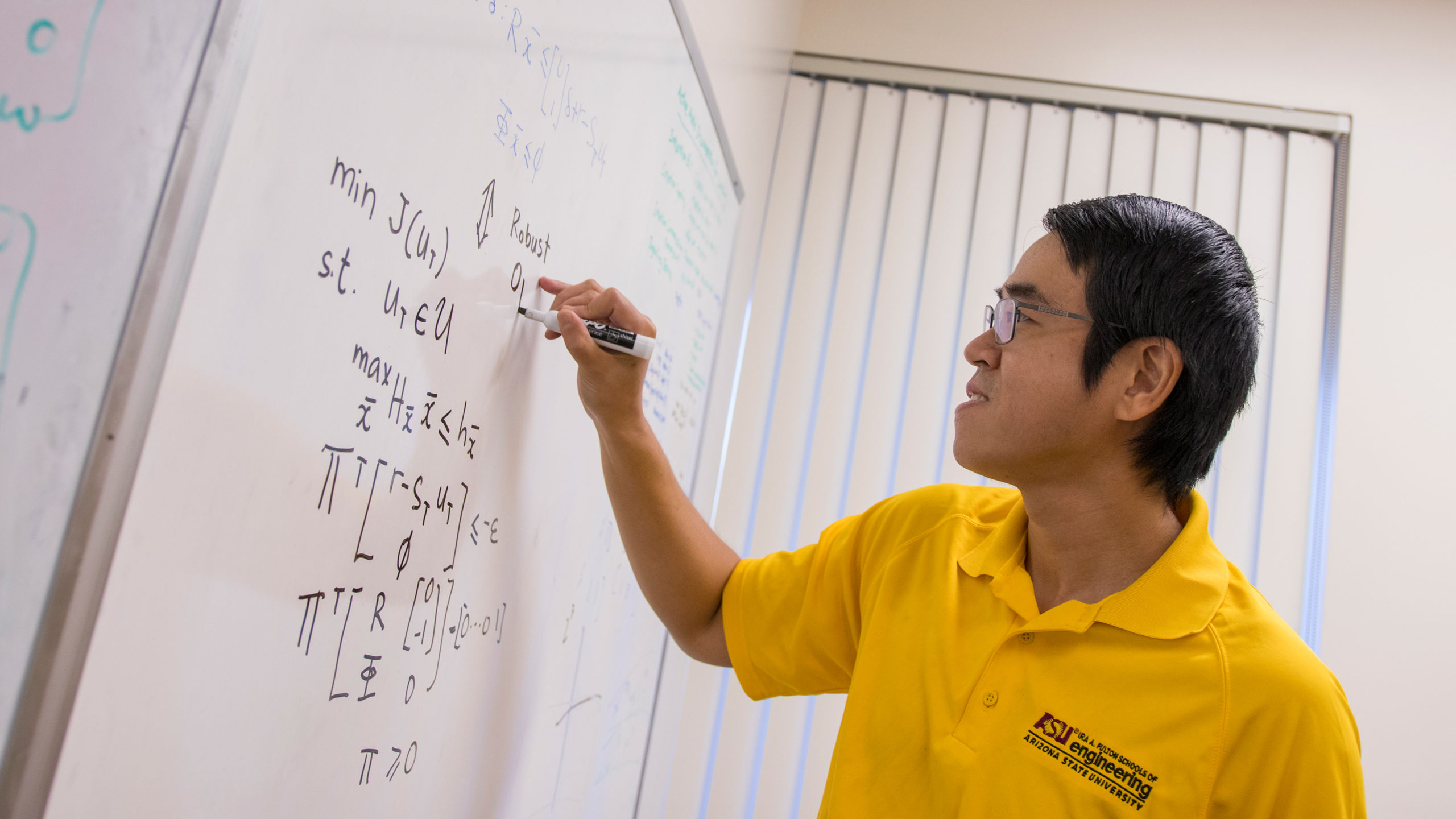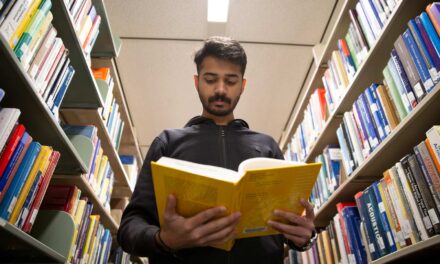
Yong enhancing the real-world safety and security of autonomous systems

Above: Sze Zheng Yong is developing control synthesis tools that can reason about real-world uncertainties to make autonomous systems, such as self-driving vehicles and drones, safe and secure in work supported by an NSF Faculty Early Career Development Program (CAREER) Award. Photographer: Marco-Alexis Chaira/ASU
Twelve faculty members in the Ira A. Fulton Schools of Engineering at Arizona State University received NSF CAREER Awards between November 2019 and April 2020.
As the use of autonomous systems continually grows, questions arise on how to ensure that the technology is deployed safely in instances such as a self-driving vehicle out on the streets or a drone flying in the air.
Many of these autonomous systems can be broken down into three main components: an artificial intelligence computer system, a physical object and a real-world environment.
Sze Zheng Yong, an assistant professor of aerospace and mechanical engineering in the Ira A. Fulton Schools of Engineering at Arizona State University, is working to provide a scientific basis to understand and leverage the interactions of artificial intelligence/cyber-human agents, their physical systems and their environment. He is developing control synthesis tools to reason about safety and security under real-world uncertainties.
Control synthesis tools are algorithms for determining drivers’ inputs, for example, the steering angle and accelerator and brake pedal positions. They are used to ensure the physical component of an autonomous system does not get into collisions or accidents by overriding self-driving cars or drones and steering them away from unsafe situations.
“Currently, the industry ensures the safety of these autonomous systems based on many, many miles of testing,” says Yong. “However, testing alone may miss some rare yet really dangerous scenarios, so the control synthesis tools can complement testing by providing some mathematical and theoretical guarantees of safety.”
Yong’s work in this area is being sponsored in part by a 2020 National Science Foundation Faculty Early Career Development Program (CAREER) Award. This recognition is reserved for researchers who show the potential to be academic role models and to advance the missions of their organizations. CAREER awards provide approximately half a million dollars over five years to further each recipient’s research.
His approach to creating a fundamental scientific understanding of the issue is to develop mathematical foundations and algorithms based on set-membership (set-memberships consider the set of all possible values instead of one “best” or average value) and learning approaches for three areas: uncertainty quantification, secure/attack-resilient estimation and safe-by-design control.
“My approach is unique because it represents a shift from the conventional average or stochastic characterization of uncertainty to a set-membership representation using hybrid inclusion,” says Yong. “We are moving from secure point estimator designs to secure set-membership estimators with run-time learning of attack models/strategies.”
The last shift Yong is working on is from fixed safe-by-design control design with uncompromised state feedback to attack-resilient output feedback designs with learning from run-time data.
“The safety control algorithm can learn and adapt based on data that are collected during operation,” says Yong. “As a result, system performance can be improved.”
Yong’s project will also focus on security. He is making sure that the autonomous systems are still safe despite potential cyberattacks that alter or spoof their sensor and/or input signals.
“My work does not directly prevent hacking,” says Yong. “If the system is hacked, despite best efforts to thwart cyber-attacks using existing technology, our algorithms can help to reduce or mitigate the effects of the attacks.”
Yong, who earned a DARPA Young Faculty Award in 2018, thinks that his ideas are rather different from existing approaches, and the tools he is developing will be generally applicable to a broad array of autonomous and cyber-physical systems, including self-driving cars, drones and underwater vehicles.
“I believe that this work lays the foundations for designing control algorithms for future smart and autonomous systems that can actively learn and adapt to their uncertain environments,” says Yong. “This enables these smart systems to be safe and secure without resorting to overly conservative and suboptimal solutions.”
Yong also credits and thanks his many colleagues, friends and family, both within and outside ASU, for providing constant feedback and support and for contributing to his successes thus far.
Yong says he came to ASU because it is rapidly growing to become one of the leading research universities in the country and in the world.
“I chose to come here,” says Yong, “because I believe that there will be a lot of room for innovation and improvement as well as for making a lasting impact, as compared to other well-established universities.”



































